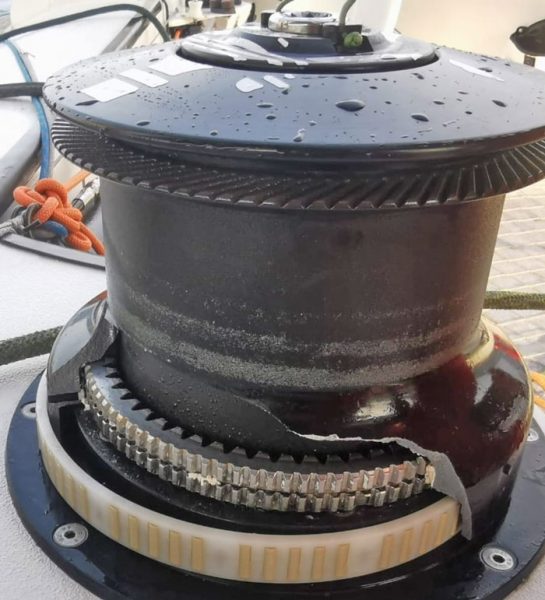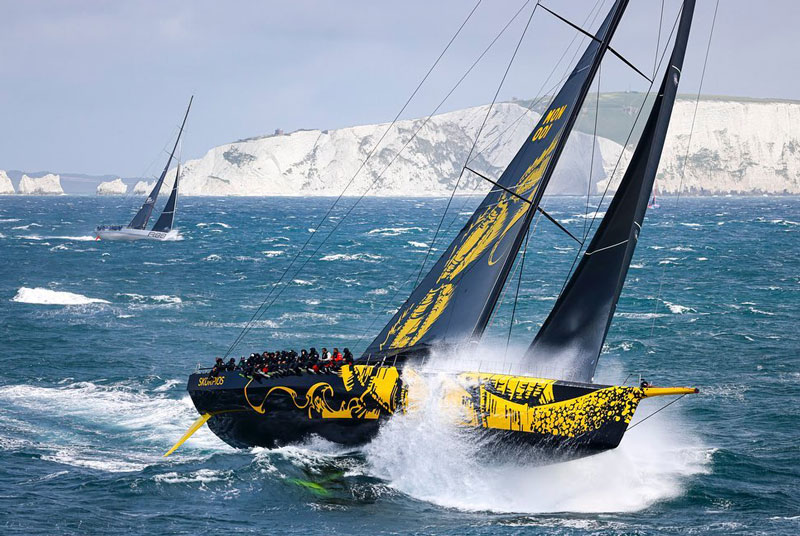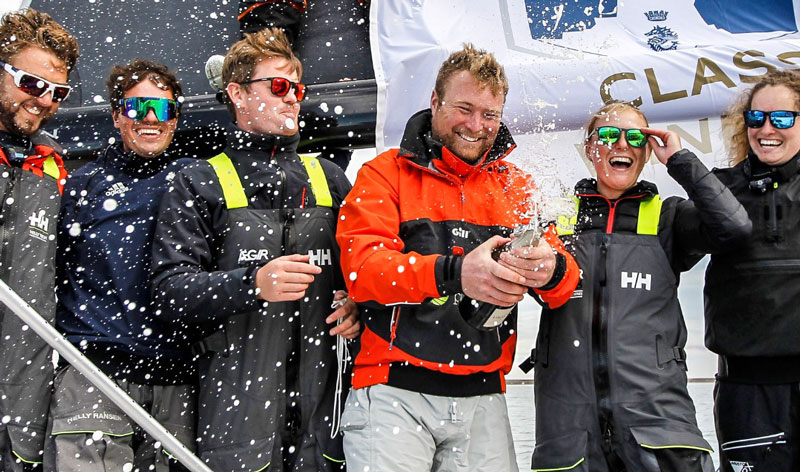
Sellout Fleet Finishes British Fastnet Race in France
The Rolex Fastnet Race — the world’s largest offshore yacht race — is currently drawing to a close in Cherbourg, France. Beginning in Cowes, England, last Sunday, the race around Fastnet Rock is finishing in France for the first time in its nearly 100-year history, which dates back to 1925. Despite the challenges posed by the COVID pandemic, the race still managed to sell out its maximum number of entries in record time. Some 400 boats from around Europe signed up in about an hour back in January, showing that the demand to go yacht racing is as high as ever, if not higher. However, ‘only’ about 337 boats managed to make it to the start line to take on the blustery conditions of the first 24 hours.

Departing Cowes in a stiff westerly breeze that hovered in the high 20s and gusted over 30 knots directly against current coming into the English Channel, the fleet was tested early with the type of challenging wind-against-current conditions famous for creating lumpy seas and broken boats.
Immediately out of the gate, Maxi Edmond de Rothschild established her dominance over the other multihulls and the rest of the fleet and jumped out to a commanding lead that she would never relinquish. Co-skippered by Frenchmen Franck Cammas and Charles Caudrelier, the 105-ft trimaran sailed in a fully crewed configuration and established the new record for the recently lengthened course of 695 miles. Sailing hard upwind to Fastnet Rock before rounding in softening conditions and sailing downwind in marginal foiling conditions, Maxi Edmond de Rothschild’s new reference time stands at an impressive 1 day, 9 hours, 14 minutes. Incredibly quick, but nowhere near as quick as this boat could potentially go in ideal conditions.
While the big multihulls were the quickest around the course by a long shot, all eyes were on Dmitry Rybolovlev’s new Club Swan 125 Skorpios, which made its racing debut at the Fastnet Race. With none of the 100-ft supermaxis in attendance, the only direct competition for the massive new 125-footer appeared to be George David’s American entry Rambler 88. Once on course however, Skorpios was challenged by the pesky ‘little’ IMOCA 60 Apivia, which sailed an incredible race to dominate the 13-boat doublehanded IMOCA division and finish well ahead of Rambler 88 to be the second monohull home to Cherbourg.

Nearly passing Skorpios upwind, the much smaller Apivia eventually got waterlined by the 125-ft Skorpios when rounding Fastnet Rock in lighter breeze and then running downwind in lighter, non-foiling conditions. Leaving the competition in awe, the duo of Charlie Dalin and Paul Meilhat put on a master class by threading the needle and connecting several tidal gates, which gave them positive current at critical moments while their competition bucked a negative current. The duo would finish in 2 days, 16 hours, 51 minutes — more than six hours ahead of the second-place IMOCA, Jeremie Beyou’s famed Charal. The Club Swan 125 finished in 2 days, 8 hours, 33 minutes to claim monohull line honors and set a relatively soft monohull course record that should easily be bested with better conditions.

There’s way too much action for us to recap in just a handful of paragraphs, so make sure to check out www.rolexfastnetrace.com/en as well as the @rorcracing and other social media feeds to get the direct scoop. We’ll have a firsthand account of the race from San Francisco sailor Harmon Shragge in an upcoming issue of Latitude 38.
